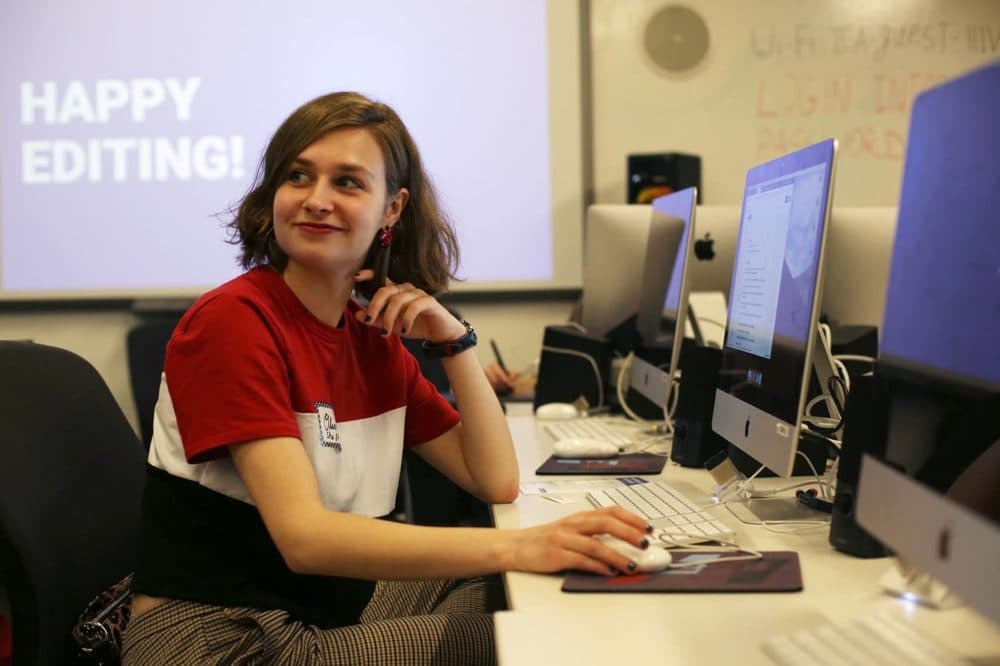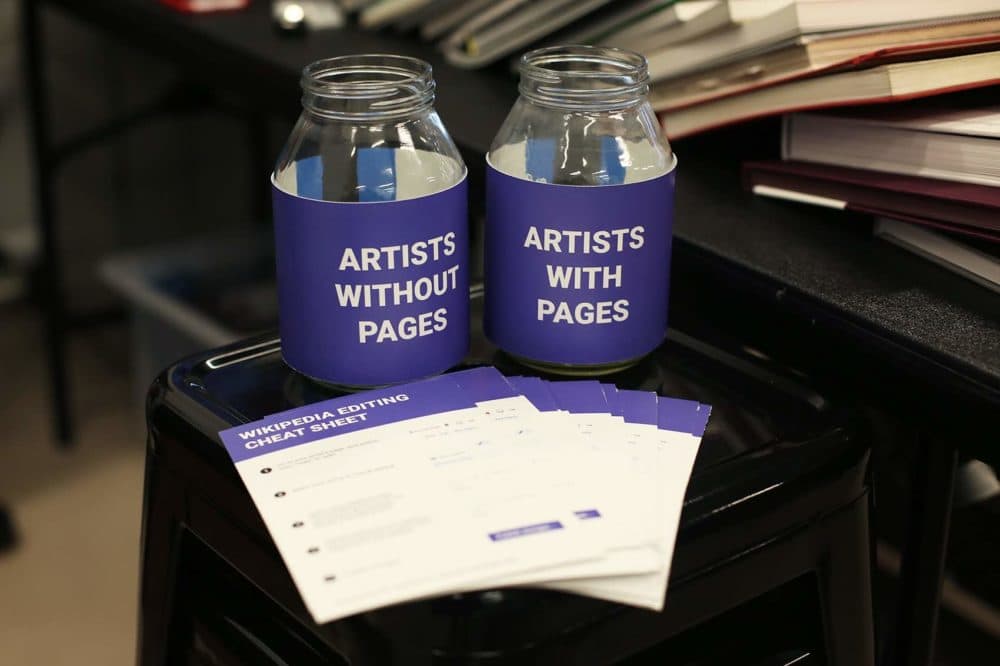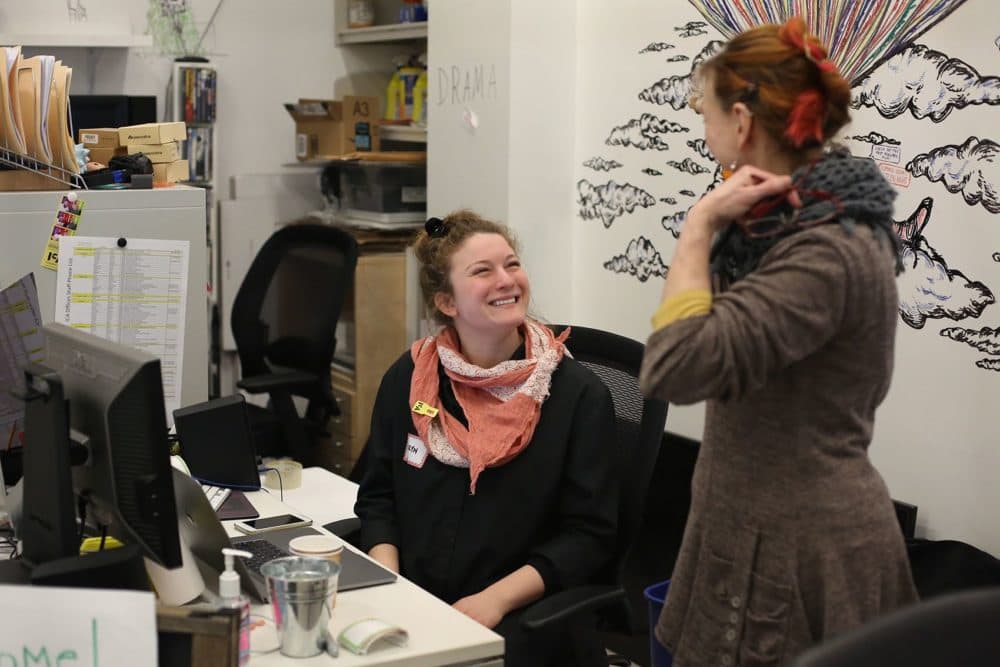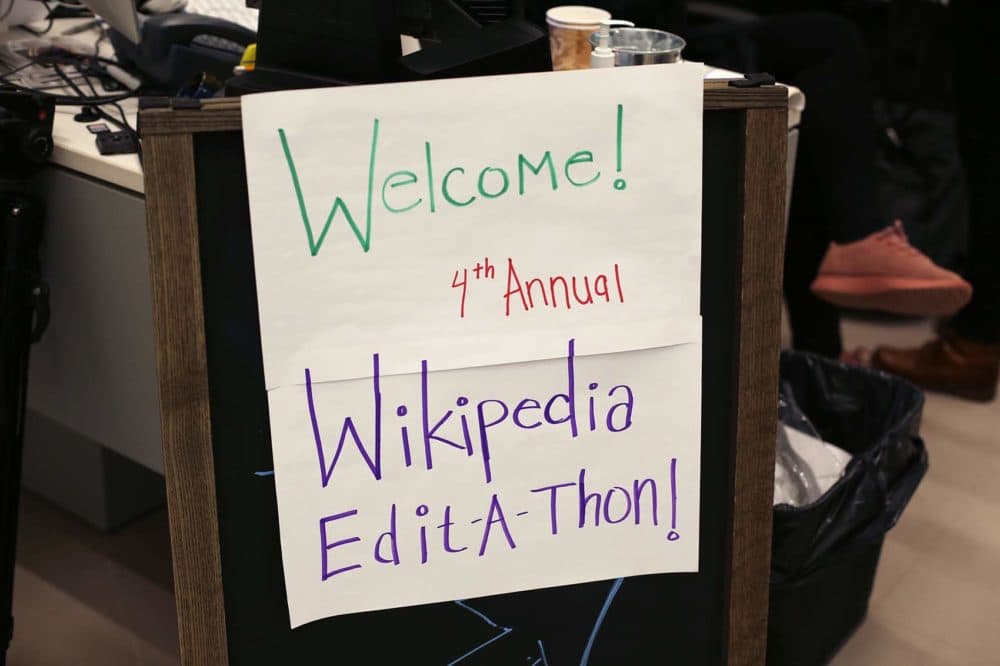Advertisement
At The ICA, A Wikipedia 'Edit-A-Thon' Aims To Close The Gender Gap

Olivia Lavoie sits at a desktop computer in a cluttered office at the Institute of Contemporary Art in Boston. She just finished watching a video about the contemporary multimedia artist Lucy Kim.
"[Kim] knows herself as an artist, and has a lot to say about what she does," Lavoie says, "which I think is awesome."
The artist is based in Boston, and has had solo exhibitions in Paris and New York City. Kim work merges painting and sculpture in tactile, uncanny depictions of the human body. One of her pieces lives in the ICA's permanent collection. But she doesn’t have a Wikipedia page.
Lavoie's task today is to create one. "I'm at the very beginning so it'll be cool to learn more about her," she says.
If you’ve ever Googled anything on the internet, chances are you’ve found your way to Wikipedia. The genius of the crowd-sourced online encyclopedia is that anyone can edit it. But not everyone does. Most available data estimates that around 90 percent of Wikipedia editors are men.
Enter the ICA’s annual Wikipedia edit-a-thon. This Sunday, the museum was one of hundreds of groups to participate in the month-long effort facilitated by the organization Art + Feminism. The goal was to increase the number of women and nonbinary artists on Wikipedia, and to teach more women how to edit the site.

Only 15 percent of English language biographies on the website are about women — and even those need a lot of work.
"Our first goal is to add factual evidence to create a more robust page," explains Karyn Georgilis, an ICA edit-a-thon volunteer. She says Wikipedia pages about women tend to focus more on their personal lives than their work.
"If their personal life is already filled out, you don’t need to add more stuff about their marriage," Georgilis says. "If their personal life is already filled out, add stuff about what shows they’ve been in, not the ages of their kids."
Georgilis says she likes Wikipedia edit-a-thons because their impact is measurable. "At the end of the events, we can see all kinds of stats: word count, how many citations we added," she explains. "As opposed to a lot of events that do a lot of good and are valuable, but only create ethereal or support effects, edit-a-thons have a number associated with them, which is really powerful."
Advertisement

Participants at Sunday’s event added a total of 2,300 words to Wikipedia. But the ICA doesn't keep track of numbers year to year. The museum’s director of education, Monica Garza, says that, since, many of the participants are new to editing Wikipedia, it's most important to teach them the ins and outs of the site.
"Some of the editors might have edited one simple line within the page [throughout the day], while others might have added a page," Garza says. "It varies, those contributions."

For a lot of people at Sunday's edit-a-thon, the event offered a chance to learn skills they could use later.
"This is something people can do in their free time," Lavoie says. "It’s not like you have to make it your job to do this, but, say, every month you commit to making a few Wikipedia pages — how hard is that? And then you’re helping the whole world."
Maybe it’s just a drop in the bucket, but it’s a start.
This segment aired on March 5, 2019.
